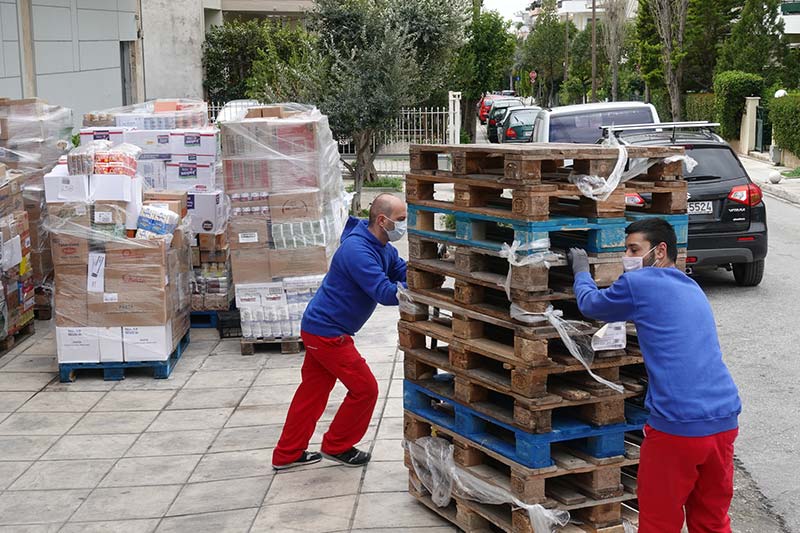In closely watched cases, three circuit courts are weighing whether COVID-19 injury and wrongful death cases should be tried in federal court or the state court where they originated. Citing the Federal Officer Removal statute, meat processors and nursing homes around the country have sought to have lawsuits removed to federal court, which is generally considered to be a more favorable forum for corporate defendants. As circuit courts take up the question of venue, their decisions will have widespread implications for similar cases.
Eighth Circuit
The Eighth Circuit is scheduled to hear oral arguments to determine whether twin lawsuits against Tyson Foods should be tried in state or federal court. Brought in Iowa state court by relatives of deceased workers, the suits accuse Tyson Foods of repeatedly lying to employees and knowingly risking their health, leading to at least five deaths and more than 1,000 COVID-19 infections among workers early in the pandemic.
After Tyson removed the suits to federal court, an Iowa federal judge ordered the cases be remanded to state court, and Tyson appealed.
The meatpacking behemoth claims it can invoke the Federal Officer Removal statute, which allows certain cases to be removed to federal court if a federal officer or agency, or an entity working under a federal officer, is involved. In April 2020, President Donald Trump signed an executive order classifying meat processors as essential infrastructure and compelling them to remain open to prevent disruption to the nation’s food supply. Tyson claims that it was effectively made a federal officer because it was acting in accordance with the executive order.
An amicus brief filed by 19 attorneys general rejects Tyson’s interpretation of the statute, arguing it is far too broad and would open the door for all manner of employers to effectively immunize themselves from state law for actions taken during the pandemic.
“It would improperly expand the federal courts’ jurisdiction to entertain state-law claims to the exclusion of state courts,” the attorney generals representing 18 states and the District of Columbia wrote in the brief. “And it would threaten the States’ ability to carry out one of their core missions: protecting the health and safety of their residents, including workers.”
The federal government also filed a brief urging the Eighth Circuit to keep the case in state court, stating that Tyson had not been acting under the direction of the federal government or performing federal functions, but “ordinary business functions – processing and delivering meat under preexisting private contracts.”
Oral arguments are expected to be heard this fall in the cases, Hus Buljic et al. v. Tyson Foods Inc. et al. and Oscar Fernandez v. Tyson Foods Inc. et al.
Third Circuit
The estates of deceased residents of two nursing homes operated by Alliance Healthcare in New Jersey filed a lawsuit in state court alleging their family members’ deaths resulted from Alliance’s failure to take appropriate safety precautions to prevent the coronavirus from spreading. Alliance removed the cases to federal court, but the district court sent them back to state court, and the nursing home company appealed.
In oral arguments before the Third Circuit panel in June, Alliance argued that guidance issued by the federal government during the pandemic converted nursing homes from participants in a heavily regulated industry to entities “acting under” federal officer direction such that they qualified for removal under the Federal Officer Removal statute.
“That argument ignores the Supreme Court’s holding that regulation – no matter its specificity – does not transform a private entity into a federal officer,” advocacy group Public Citizen stated in an amicus brief filed in support of the plaintiff-appellees.
The panel has not yet reached a decision in the cases, Estate of Joseph Maglioli et al. v. Alliance HC Holdings LLC et al. and Estate of Wanda Kaegi et al. v. Alliance HC Holdings LLC et al.
Ninth Circuit
The Ninth Circuit is considering hearing oral arguments in a similar case, Jackie Saldana et al. v. Glenhaven Healthcare LLC. The case stems from the May 2020 death from COVID-19 of Ricardo Saldana, a resident in a California nursing home owned and operated by Glenhaven. Saldana’s family sued in state court, arguing that his death was the result of the nursing home’s failure to take basic safety precautions. The plaintiffs allege the nursing home failed to provide employees with appropriate personal protective equipment, prohibited employees from wearing face coverings, and failed to isolate staff and residents who had been exposed to the virus.
Glenhaven had the suit removed to federal court, citing the Federal Officer Removal statute, but a California judge sent it back to state court, prompting the company to file an appeal.
“Federal authorities have explicitly guided operational decisions related to the clinical pandemic response in skilled nursing facilities,” Glenhaven stated in a brief. “When the federal government instructs private parties on how to carry on their business during a national emergency it is enlisting those parties to carry out the duty of the government itself to ensure the continued provision of ‘services critical to maintaining the national defense, continuity of government, economic prosperity, and quality of life in the United States.’”
Public Citizen, which is representing the Saldanas on appeal, countered, “Supreme Court case law makes clear that regulation and non-binding guidance do not create a relationship that satisfies the ‘acting under’ requirement.”
The Takeaway
Like the pandemic itself, COVID-19 litigation is largely unchartered territory, and the decisions in these early cases will set precedent for where similar cases will be adjudicated.

